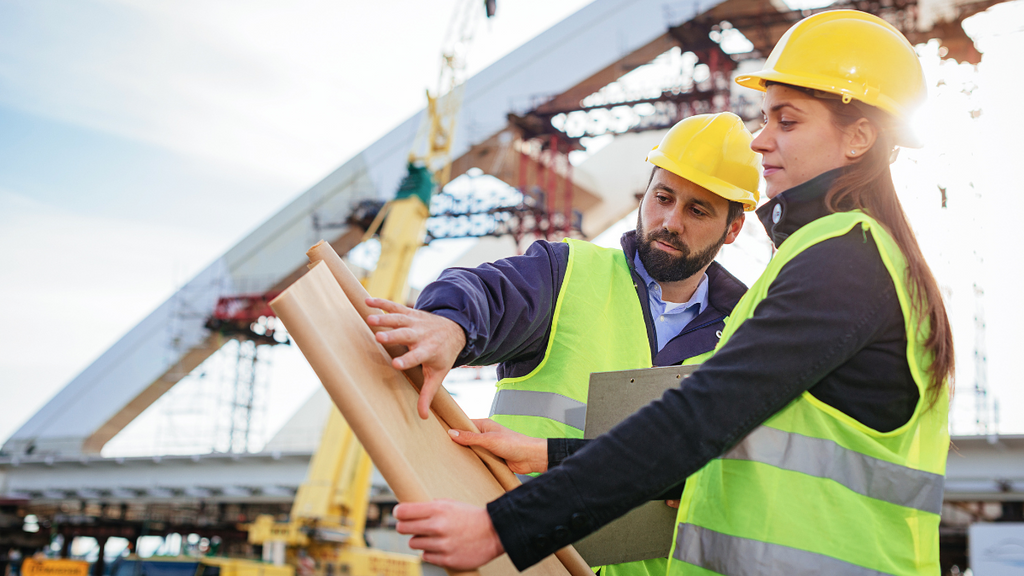Unknown Facts About Geotheta

A geotechnical designer is a specialized civil engineer that focuses on the behavior of soil, rock, and various other materials located underneath the Planet's surface. They apply clinical principles and design strategies to analyze the residential or commercial properties and actions of these materials to support the secure and efficient layout, construction, and upkeep of infrastructure tasks.
They conduct site examinations, collect samples, do lab tests, and assess data to examine the viability of the ground for building and construction projects - Engineer of Record. Based upon their findings, geotechnical designers give referrals for foundation design, slope stability, preserving structures, and reduction of geotechnical dangers. They team up with other professionals, such as architects, architectural designers, and building and construction groups, to ensure that geotechnical considerations are integrated into the general task layout and implementation
By analyzing the actions and residential properties of dirt and rock, they can recognize potential geotechnical risks such as landslides, soil negotiation, or incline instability. Their knowledge helps stop failures or crashes that could endanger lives and building. Right here are some in-depth obligations and duties of a geotechnical designer: Website Examination: Geotechnical engineers conduct site investigations to collect data on subsurface conditions.
They translate the information to understand the residential or commercial properties and habits of the soil and rock, including their stamina, permeability, compaction attributes, and groundwater problems. Geotechnical Evaluation and Layout: Geotechnical designers evaluate the information collected during website investigations to assess the security and viability of the website for construction jobs. They carry out geotechnical estimations and modeling to evaluate factors such as birthing ability, negotiation, incline stability, lateral earth pressures, and groundwater circulation.
Some Of Geotheta
Foundation Design: Geotechnical designers play a vital role in making foundations that can safely support the desired structure. They assess the dirt conditions and load demands to identify the appropriate structure type, such as shallow foundations (e.g., footings), deep structures (e.g (https://www.huntingnet.com/forum/members/geotheta.html)., stacks), or specialized methods like soil improvement. They think about elements such as settlement limits, bearing capacity, and soil-structure communication to create optimum structure styles
They review construction strategies, screen site activities, and conduct area examinations to validate that the layout suggestions are complied with. If unanticipated geotechnical problems occur, they evaluate the scenario and supply suggestions for remediation or adjustments to the layout. Threat Assessment and Mitigation: Geotechnical engineers analyze geotechnical dangers and risks connected with the task website, such as landslides, liquefaction, or soil disintegration.

Collaboration and Interaction: Geotechnical engineers function very closely with other experts associated with a project, such as engineers, structural engineers, and construction teams. Reliable communication and cooperation are vital to integrate geotechnical factors to consider into the overall task style and construction process. Geotechnical designers offer technical knowledge, solution inquiries, and make certain that geotechnical demands are fulfilled.
Some Ideas on Geotheta You Should Know
Here are some sorts of geotechnical designers: Structure Designer: Foundation designers concentrate on designing and examining structures for frameworks. They evaluate the soil problems, lots needs, and site attributes to establish the most appropriate foundation kind and layout, such as superficial structures, deep structures, or specialized strategies like heap structures.
They assess the elements influencing incline security, such as dirt buildings, groundwater problems, and incline geometry, and create approaches to avoid slope failures and mitigate risks. Earthquake Engineer: Quake designers specialize in evaluating and developing structures to endure seismic forces. They analyze the seismic threat of a website, review dirt liquefaction capacity, and develop seismic design criteria to ensure the safety and resilience of frameworks throughout earthquakes.
They perform area screening, gather samples, and analyze the collected information to define the soil residential or commercial properties, geologic formations, and groundwater conditions at a website. Geotechnical Instrumentation Designer: Geotechnical instrumentation engineers focus on surveillance and gauging the habits of soil, rock, and frameworks. They mount and keep instrumentation systems that keep an eye on aspects such as soil negotiation, groundwater degrees, incline motions, and architectural variations to examine performance and provide early cautions of possible issues.
Some Known Details About Geotheta
They tend to be investigative people, which means they're intellectual, introspective, and inquisitive. They wonder, systematic, reasonable, logical, and logical. A few of them are additionally social, indicating they're kind, generous, participating, patient, caring, practical, understanding, sensible, and friendly. Does this sound like you? Take our totally free occupation examination to learn if geotechnical engineer is one of your top occupation suits.
In the workplace atmosphere, geotechnical engineers use specialized software application tools to carry out calculations, develop styles, and evaluate data. They additional hints prepare reports, testimonial task requirements, interact with clients and employee, and coordinate project tasks. The workplace setting offers a conducive setting for study, evaluation, and cooperation with other specialists associated with the project.
Our Geotheta Ideas
They frequently see job websites to conduct website investigations, analyze geotechnical conditions, and collect data for evaluation. These check outs involve taking a trip to different areas, in some cases in remote or tough terrains. Geotechnical engineers might perform soil tasting, conduct tests, and screen construction tasks to ensure that the geotechnical elements of the task are being executed properly.
Geotechnical engineers likewise function in specialized geotechnical laboratories. In these facilities, they perform experiments, do tests on soil and rock samples, and assess the engineering homes of the products. Geotechnical research laboratory engineers work extensively in these atmospheres, handling testing devices, running tools, and recording data. They work together with other laboratory personnel to make certain precise and reputable screening outcomes.
Comments on “Some Known Incorrect Statements About Geotheta”